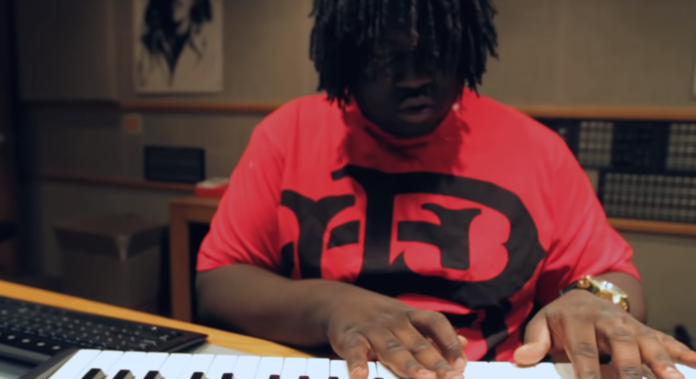For the 180 (one-eighty) podcast episode on this topic, listen to it here! Subscribe to our YouTube channel and watch this 180 episode here!
This piece is an adaptation of my Quora answer to the question, “Is Ben Shapiro right about hip-hop not being music?“
It’s one thing to call a genre sparse, raw, synthetic, or other possibly condescending adjectives. But to say a body of intentional sonic work is simply not music takes a special kind of arrogance many critics of hip-hop have in abundance.
The following is a presentation of common arguments against hip-hop’s status as a musical genre and how to tear them to shreds.
Argument 1: Music Has Only Three Key Elements
The idea that music can be defined solely by the presence or absence of melody, harmony, or rhythm is simply wrong. Not fallacious, not misleading, just wrong. What would one say about tempo, timbre, and other elements that make music identifiable?
Argument 2: A Genre Needs Two of Those Magical Key Elements to Be Considered “Real” Music
A guitar solo is musical despite its lack of harmony or rhythm. A choir harmonizing is musical despite the lack of a beat. A repetitive banging of a kick drum is musical despite its lack of melody or harmony.
Taking it to the scope of a genre, is ambient music not music because it lacks rhythm? Is a capella singing not music unless there are multiple voices plus snapping and clapping?
While sound has to have some intentionality to become a genre, the line between what is and isn’t music—much like a line between two related genres—is pretty blurry. The assertion of a hard and fast definition of music can only come from supremacist thinking; the desire to judge sounds, instruments, and their users as more or less musical is all about social class and nothing to do with the validity of different sonic expressions as music.
Argument 3: Hip-Hop Music Does Not Have Melody
Melody has been at the essence of hip-hop since it began. Even if you strip rappers of instrumentation, which almost always contains sampled or original melodies and harmonies, rapping itself is unbelievably melodic. Just because it doesn’t appear in the apparent tones and semitones you get from a singer doesn’t mean there aren’t intentional sequences of notes being hit.
This piece I wrote on the emergence of melody in rap technique also contains a pet study done by Ethan Hein, a Doctoral Fellow in music education at NYU, where he runs a capella verses of rappers such as Rakim and Andre 3000 through an audio software called Melodyne to track the notes and patterns in seemingly unmelodic rap performances. Here are a couple of the graphs Melodyne produced for Hein:
This is just five seconds of Rakim’s first verse in “Follow The Leader” (1988):
And this is about 8 seconds of Andre 3000’s first verse in “B.O.B.” (2000):
To top it all off, it is impossible for any genre of music that has human vocals to not have melody. Human speech patterns, by default, are melodic.
Argument 4: People Assess All Other Genres of Music Using These “Rules”
You won’t see music critics come for church choirs or classical composers with no vocalists in their pieces. They only go after hip-hop. Along with bogus musical criticisms, there are plenty of cultural ones as well. The reasons for this are cynical at best and racist at worst.
As hip-hop continues to inspire baseless claims about its lack of musicality, it is important to note this as an example of history repeating itself. Like other mainstream genres birthed by Black Americans, the idea of hip-hop as a valuable, elevated craft is meeting stiff resistance as elements of it are being stripped from their original context and absorbed into the mainstream to the delight of casual consumers.
In the 1920s, the Black-made and Black-dominated musical genre jazz was the lifeblood of U.S. nightlife and the bane of White American scholars’ existences. Among other racist denouncements, Princeton University professor Henry Van Dyke had this to say about jazz in 1921:
“Jazz music was invented by demons for the torture of imbeciles.”
– Henry Van Dyke to the National Educational Association, 1921
And Rev. Dr. Percy Grant of an Episcopalian church in New York City said this a year later:
“Jazz is retrogression. It is going to the African jungle for our music. It is a savage crash and bang … Its effect is to make you chatter, and, as Voltaire said, ‘to go on all fours,’ to which I would add, and to whisk your tail around a tree.”
– Percy Stickney Grant, 1922
In case you don’t know, the best-selling jazz artist of all time is Kenny G, a White man. Hard to believe any critic said Kenny G’s saxophone playing brought out their inner monkey.
***
I’m certainly not the first person to take down the notion that rap music is not music just because its artists are not pitch perfect or playing traditional instruments. Along with my citation of Hein, here’s David Leigh of the Metropolitan Opera addressing the question on Quora and prolific music critic Anthony Fantano directly addressing these specific arguments.
Why stop at reading Across The Culture when you can hear it? 180, ATC’s first podcast series, is available on Buzzsprout here! Peep the first episode below:
